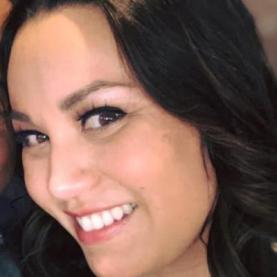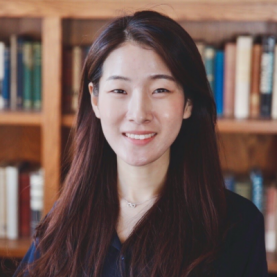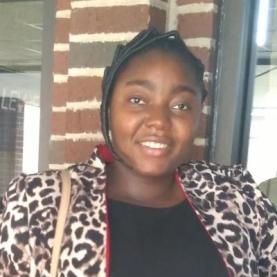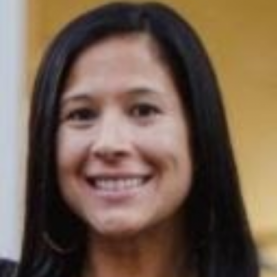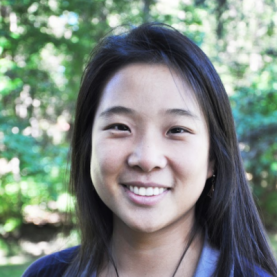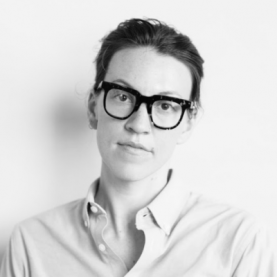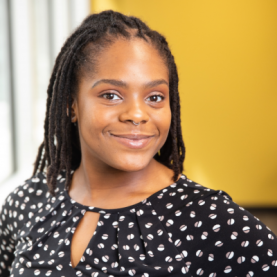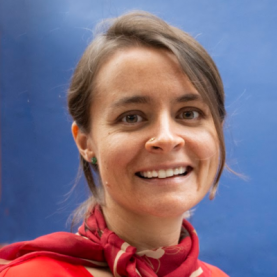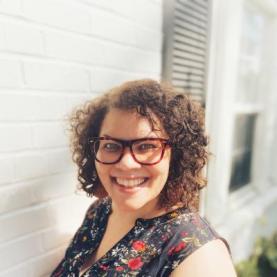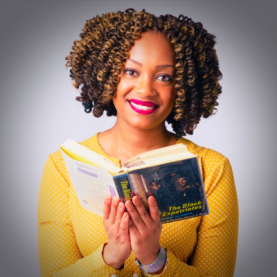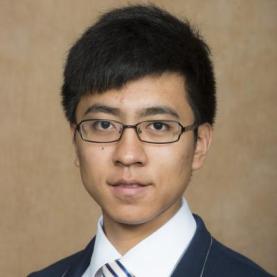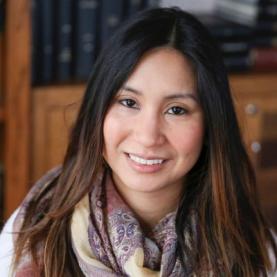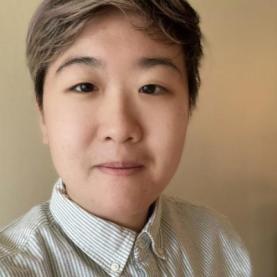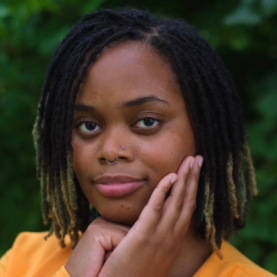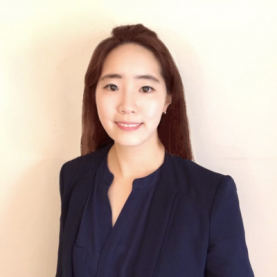The Graduate School is pleased to announce the 2020-2021 LEID Fellowship Recipients
Congratulations to the recipients of the 2020-2021 LEID Fellowship! The Leadership in Equity, Inclusion and Diversity (LEID) Fellowship rewards Ph.D. candidates who have demonstrated a commitment to diversity, equity, inclusion and/or social justice through scholarly activity and/or climate enhancing initiatives. The secondary aim of the fellowship is to provide financial support for those with insufficient funding as a consequence of COVID-19. The award offers Ph.D. candidates an opportunity to devote full-time effort to write and finalize a dissertation during the fellowship year.
Jill Greendeer, Nursing
Dissertation Topic: Multifaceted Stressors of Native Americans Living with Type 2 Diabetes: A Comparison Between Men and Women
As a Hocak hi-nuk (woman) and nani (mother), my life purpose resides within the space of diversity, equity and inclusion, and is part of the bridge between Indigenous communities, academia, holistic wellness, cultural traditional healing, and healthcare. My life work and lived experience has prepared me for this role. I have experience working in academic, corporate, and clinical settings both within Native American communities and in mainstream society. I have lived experience as an Indigenous woman in both urban and rural environments that adds to my diverse worldview and gives me a strong sense of grounded Indigenous voice to pursue my life purpose of helping to heal and empower Indigenous people.
My experiences at the University of Minnesota as an Indigenous woman allowed me to develop a heightened awareness of systemic racism and oppression. I recognize systemic racism and oppression are deeply embedded within healthcare, academia, and the University of Minnesota. Far too often I see non-Indigenous people benefit at Indigenous communities’ expense, they are rewarded as leaders and advocates of diversity and equity. They often publish research articles and misrepresent, misinterpret, and misguide their ‘findings’ within Indigenous communities with adverse impacts on Indigenous communities.
This experience gave my life purpose and call to action a deeper sense of need and urgency. The University of Minnesota gave me that opportunity to stand my ground, speak my truth, share my Indigenous lived experience, and to find comfort in uncomfortable spaces, conversations, and initiatives. The University of Minnesota, made me realize we all have tremendous work to do and I can not accomplish this alone. I hope to continue to network with others that value diverse and Indigenous voices and perspectives, and that we can impact social climate change that will give life and acceptance to diversity, equity and inclusion.
Seo Nyeong Holly Jo, Political Science
Dissertation Topic: Decision-making Behavior of Judges in Rape Cases in Civil Law Judiciary
I am a Ph.D Candidate in Political Science. My subfields are Comparative Politics and American Politics. My passion for a scholarly pursuit of gender equality and social justice is derived from my personal experiences at the University of Minnesota, where diversity is considered to be one of its core values. Ironically, it is the classroom environment where I have experienced implicit racial and gender bias. Through these experiences I learned that anyone, regardless of their intelligence, may have implicit bias that they are oblivious to or refuse to admit. While we should not be ashamed of the fact that everyone harbors implicit bias that takes place unconsciously, we also should not forget that the only way to resist it is to keep educating and reminding ourselves of our own vulnerabilities.
I began exploring how judges, who are highly educated and esteemed people in our society, deal with implicit gender bias when making decisions in cases concerning violence against women. It is particularly a timely concern in the #MeToo era when numerous sexual assault survivors are breaking silence about their assault experiences as well as raising the issue of revictimization inside the courtroom. My dissertation contributes new theoretical perspectives on gender and judging through an exploration of how different gender compositions of three-judge panels and a judge’s rank influence criminal sentencing decisions regarding rape in South Korea—a civil law country characterized by the absence of jury trials, hierarchical judicial organization, and high gender inequality. I use mixed methods including logistic regression, content analysis of over 1,000 judicial opinions, and semi-structured interviews with 42 legal elites to compare and contrast judges of both genders and different ranks on their perception of rape, law interpretation, determination and reasoning behind the sentencing, and their own influence to the other on a panel.
Aduramo Lasode, Mechanical Engineering
Dissertation Topic: Energy Recovery in Small-Scale Distributed Waste Systems and Technology-to-Policy Road Map to Aid Technology Implementation
Aduramo Lasode is a PhD candidate in the Department of Mechanical Engineering, at the University of Minnesota’s College of Science and Engineering. Her research is interdisciplinary through the UMN Thomas Murphy Engine Research Lab, including both energy and combustion technology, and energy policy development. Her research objectives and approach are derivative of her experiences with learning innovation, and STEM education. Aduramo is passionate about equity issues regarding access to education and energy. She found this passion at the tender age of fourteen years, as a young Nigerian lady who faced cultural and systemic challenges in pursuing a major that would enable her to address fundamental needs in her community.
In 2011, Aduramo began her educational equity journey as a tutor during her freshman year at the University of Minnesota. By her sophomore year, she became a mentor and tutor through a STEM education outreach program in North Minneapolis called Prepare2Nspire. Through this program, she served African American and Latinx students who successfully became first generation college students and graduates. Her experiences culminated in a project with the MN Office of Higher Education to provide underserved high school students with accessible information that aided adequate preparation for college. She is also a past awardee of the undergraduate UMN Scholarly Excellence in Equity and Diversity (SEED) award.
Aduramo sees her current research as a way to advance efforts in scientific communication that aid society’s renewable energy goals by ensuring affordable technologies reach where they are most needed. Reflecting on her journey, Aduramo states that storytelling plays a crucial role in inspiring others to be the needed change in their spheres of influence. “The most important story I can tell is with my life, being an inspiration to people who share my underrepresented identities and showing them that success is possible”.
Amanda Lugo, American Studies
Dissertation Topic: "Superman es un Bad Hombre" is an American Studies project that engages with Popular Culture and Chicano Latino Studies.
As a Latina whose existence is shaped by racism, misogyny, and classism, I am dedicated to advocating on behalf of marginalized and vulnerable communities while acknowledging the privilege of participating in the political process and continuing my education. Cathy J. Cohen’s Deviance as Resistance introduces an approach that centers “around the experiences of those who stand on the (out)side of state-sanctioned, normalized, White, middle- and upper-class, male heterosexuality” (Cohen, 2004) to redefine and reallocate power. I use this approach to guide my life’s work because examining the daily acts of resistance people commit and the structural injustices that inspire these acts can create coalitions developing and articulating an equitable, inclusive, and just agenda. Studying popular culture provides me with the opportunity to center my work around those outside of normative, mainstream society and have previously been silenced and unwelcomed from the national narrative. By conducting an oppositional reading of Superman and the classic Chicano films American Me and Mi Vida Loca in the age of Trump, I present a counter narrative critiquing politics of inclusion demonstrating citizenship as a hegemonic exclusionary project seeking to reverse the ways the Latinx community has been pathologized by popular culture in America. I have continued Cohen’s call to action to create a new abolitionist and inclusive approach to politics that values nonnormative contributions to social justice as a Ph.D. candidate and in my career choices. I also do this in my community organizing work, most recently, as a Woke Vote Summer Research Fellow. I am an American Studies scholar, community organizer and activist dedicated to making the inherently violent confines of American citizenship visible which is connected to how I conduct community organizing, engagement, and outreach.
Persephone Ma, Land and Atmospheric Science
Dissertation Topic: Sewage Sludge Incineration Ash as a Recycled Agricultural Phosphorus Source
The diversity, equity, and inclusivity (DEI) work I am most proud of so far has been centered in my department, the Department of Soil, Water, and Climate, which has been a supportive incubator for how to integrate DEI work into academic life.
To begin, I revived an annual cultural potluck event, called Experience All Traditions (EAT) Night, which is an opportunity to reflect, learn, and celebrate the culture that every member (international and domestic, BIPOC and white) brings to our department. To support the celebration, I led an ad-hoc committee to articulate the continued commitment and hard work required to integrate DEI work into the department’s everyday operations. After approval of our department-level DEI Statement, our first deliverable was to develop a self-reflective, cultural awareness, questionnaire to be used before outreach events. This questionnaire and opportunities to discuss DEI issues in academia will be integrated into required graduate student curriculum this coming year.
After the murder of George Floyd, a professor and I spearheaded and managed a two-prong response in our department: 1) a short-term committee to address trauma and provide resources and individual dialogue opportunities for those reckoning with systemic racism in our country; and 2) a summer-term consultative committee to collect, organize, and articulate actionable, anti-racist initiatives and implementation strategies for the department. While some of this work will take many years, I am grateful to my department for the action they have already taken this summer and the University for selecting me as a LEID fellow.
Áila O'Loughlin, Culture & Teaching
Dissertation Topic: Teaching and Learning Gender: What must teachers know and do when it comes to gender, sex traits and sexual orientation
My research centers the question--what must teachers know and do when it comes to gender, sex traits and sexual orientation? This central question demands consideration for both the ethics and praxis of teaching. For my dissertation, I interviewed focus groups of fellow lgbtqia2+ teachers this past spring and now am weaving together their narratives to produce scholarship that will inform teacher education. When I went through my own teacher training program 8 years ago, I learned so much from an importantly critical program, rooted in critical race theory and an understanding of schools as vehicles for social class stratification. In that program however, teacher-candidates discussed gender and sexual orientation for only one class period over the course of two years, and for less than thirty minutes. I hope to interrupt the normalization of this silence regarding gender in the classroom with my scholarship.
Naimah Petigny, Feminist Studies
Dissertation Topic: Black feminist performance and the politics of gender, movement, and Black liberation
As a Black feminist, my career combines teaching, scholarship, university leadership, artistic practice, and collaborative partnerships in community. As a leader, I show up as myself, listen, and aim for clarity. While institutional support and recognition has allowed me to continue to do my work as a scholar, it is the presence and support of community members, organizations, and fellow activist-scholars-artists that affirms the value of my work in the world. Since 2016, I have been a member of the Critical Race and Ethnic Studies (CRES) Graduate Writing Group, a collective of first generation, queer, graduate students of color who support the scholarly and pedagogical development of graduate students in the fields of Critical Race and Ethnic Studies through writing group meetings, professional development, and peer advocacy. We draw inspiration as leaders from the social movement struggles our disciplines were founded in, building intellectual community, and the mentorship of future generations of critical scholars.
Maria Cecilia Schwedhelm, Curriculum & Instruction
Dissertation Topic: (Re)imagining and enacting language reclamation through embodied and arts-based pedagogies
Maria’s research and praxis as an educator actively works to create physical and ideological spaces for Indigenous languages and epistemologies with youth and university students in Mexico and in the U.S. She is currently working with pre-service language teachers in Oaxaca in a co-exploration of the relationships between power and language to (re)imagine and (re)create equitable multilingual practices and pedagogies through performance, art-making and storytelling. Impacted by the COVID-19 pandemic, the work of the class was moved to a virtual realm. Students have created virtual performances, made videos in their native or heritage language(s), written and illustrated children’s books, poetry and graphic novels, all of which will be published through an interactive online gallery that will also serve as a platform to foster new and existing collaborations.
Parallel to her dissertation work, Maria is co-developing collective projects with Chispas Idiomáticas, a student-led organization in Oaxaca and Language Attitude, a startup community-based organization in Minnesota. These projects seek to promote the teaching and learning of Indigenous languages through academic and artistic activities with the goal of fostering intercultural and intergenerational dialogue and communication that will help build solidarity across difference while creating culturally sustaining and revitalizing practices in education.
AshLee Smith, Public Policy
Dissertation Topic: The Punished Mother: Essays Examining the Experiences of Mothers living at the Institutional Intersection of Child Protection and Criminal Justice
AshLee Smith is a Public Policy PhD Candidate in the Humphrey School of Public Affairs at The University Minnesota. AshLee’s primary research interests include social policy, poverty, and the intersection between policy design, social control, gender, and race. She is passionate about advancing diversity, equity, and inclusion initiatives in higher education as an alumnus of many of these opportunities in undergrad. Throughout her graduate career, she has continuously pushed for and participated in programs that are committed to DEI issues and serve marginalized students. In her research, she examines the role of poverty governance in shaping the lives of the vulnerable. As a result of her life experiences in the foster care system, she is passionate about studying public policy and applying her research to the real world surrounding the lives of the vulnerable in the U.S.
In her dissertation, “The Punished Mother: Essays Examining the Experiences of Mothers living at the Institutional Intersection of Child Protection and Criminal Justice” , she explores the dynamics of interacting punitive institutions through ‘crossover mothers’ - mothers who have had involvement with both the child welfare and criminal justice systems as adults. She argues that poor women and women of color go through multiplicative violent processes when they are involved with these systems of punishment. These systems not only regulate, but also exacerbate punishments on the poor.
She is the recipient of the National Science Foundation Graduate Research Fellowship (NSF GRFP 2016), the Diversity of Views and Experience (DOVE) fellowship at the University of Minnesota (2017), the APPAM 2018 Equity & Inclusion Fellowship and the American Political Science Association Minority Fellowship (2016).
AshLee holds an MPP in Social Policy from UMN. Prior to UMN, she graduated with a BA in Anthropology and Political Science from Louisiana State University. She is a former Public Policy and International Affairs (PPIA) Fellow who participated in the Junior Summer Institute at University of California-Berkeley in 2014.
Tiffany Lachelle Smith, Organizational Leadership, Policy and Development Program/ Comparative and International Development Education
Dissertation Topic: (Dis)Covered Routes: Life Histories of African American Expatriate Educational Professionals in the Emirates
My concerns about the United States (US) PK-12 teacher profession evolved my scholarly pursuits to situate concerns about diversity, equity, and inclusion in global conversations about education. My dissertation project examines teacher turnover through the life histories of African American (AA) educators and their subsequent decisions to leave US PK-12 schools for schools in the United Arab Emirates (UAE). Conducting such a study revealed several limitations such as the lack of contemporary studies that investigate migration and mobility through Black subjects; particularly Black subjects who leave developed countries for developing ones. In response to this gap between academic literature and unexplored societal concerns of significance, in 2018, I created my podcast—(A)Broad in Education (ABE).
ABE is a contemporary academic podcast, layered by a flavor of pop culture, to engage in critical discourse about Black mobility. As the founder and host, ABE has a mission to (dis)cover routes (pronounced roots) through conscious conversations about EDpats, a term I created to define educational expatriates working in schools outside of their home countries. bell hooks (1994) argues that thinking about the imagination subversively creates questions about how to decolonize imaginations. ABE decolonizes imaginations by (re)membering migration stories of Black exiles and migrants and by lengthening them through contemporary narratives that “makes us subjects in history” (hooks, 1994, p.54). For instance, in episode 45, Dr. Karen Flynn notes that for some AAs, utilizing the term expatriate is an act of resistance to claim space that Black subjects have historically been prevented from filling, which disrupts imaginations coaxed by politicized assumptions.
ABE has forty-five episodes downloaded over 5000 times by a listenership that spans over 80 countries. ABE is also now part of the Colorcast Podcast Network, “one of the first podcasting platforms dedicated to engaging diverse audiences, with diverse content, from diverse podcasters.”
Yi Tang, Business Administration
Dissertation Topic: Advancing Equity in the Mental Healthcare Supply Chain
Titled "Advancing Equity in the Mental Healthcare Supply Chain", my dissertation is investigating the mechanisms leading to the significant inequities existing in the current mental healthcare supply chain and looking into ways to promote equity, inclusion, and diversity in mental healthcare. Specifically, a unique but alarming aspect of mental healthcare delivery is that there are significant access and treatment inequities across sub-populations that are associated with their socio-demographic characteristics such as race-ethnicity, sexual orientation, and gender. Smart health technologies - such as smartphone mobile applications - are believed to enable healthcare delivery to become smarter, more accessible, and more inclusive. Through its easy and timely access, connectivity to anonymous online communities, and wide acceptance across people of different socio-demographic backgrounds, mobile apps have the potential to create an inclusive platform where people across race-ethnicity, sexual orientation, and gender are willing to seek help. My dissertation is a theoretically grounded, empirical inquiry focused on evaluating the potential of mobile apps in advancing equity in mental healthcare delivery. I am conducting my dissertation research in collaboration with a mental health mobile app start-up company whose founder is a University of Minnesota alum who attempted suicide during his undergraduate study due to severe depression. He subsequently decided to develop a free mental health mobile app, Marbles (a newly designed and re-branded app called Avalo is available at https://www.avalo.app/), to help people in need to conveniently and safely seek or provide mental health support anonymously and inclusively. I am collecting and analyzing detailed, longitudinal data on user socio-demographics and time-stamped usage from the Marbles app, and estimating rigorous econometric models to evaluate the equity-advancing effects of mental health mobile apps. Initial results have shown that mobile apps provide equal opportunities to users from an underserved sub-population seeking mental health help.
Farrah Tek, Political Science
Dissertation Topic: My dissertation grapples with the question of why and how subaltern actors in repressive states choose to engage the law to redress their grievances, despite the apparent hopelessness of doing so. Through an analysis of an environmental land group.
My commitment to DEI issues is demonstrated both in action and on paper. From 2015-2017, I served on the Political Science’s Diversity Committee and co-led a series of initiatives. I independently fostered a collaboration with Sociology and History departments, and we won a grant from the College of Liberal Arts (CLA) to create a pipeline for students from historically Black colleges and universities (HBCU). I co-organized “Diversity Weekend” to recruit students from underrepresented and underserved groups, and I helped create a Ph.D. concentration called “Power, Equity, and Diversity” for students to explore issues on the margins. It is necessary not only for students to engage with a community of scholars like them, but also read, study, and write on Political Science works that centered issues and groups of people important to them. Thus, I also created the first “Diversity Talks”—a interdisciplinary colloquium series that aimed at inviting scholars whose research focused on DEI themes.
My dissertation work contributes to an emerging literature on legal mobilization beyond the West and breaks new ground in the study of authoritarian legality. It focuses on the conditions under which marginalized communities engage with the law in authoritarian settings, which is necessary because people’s interactions with the law in the Global South reveal the multifaceted roles and meanings in contexts different from the West. Much of the scholarship in Political Science assumes that citizens do not use the law under conditions of political authoritarianism. My dissertation argues that repression and a weak rule of law system do not necessarily dampen engagement with the law, but can also push citizens to engage with the law further in innovative ways. Studying subaltern populations’ engagement with the law in authoritarian contexts is important because it highlights the relationship between marginalization, human agency and law under repression.
Yu-Chi Wang, Psychological Foundations of Education
Dissertation Topic: Effects of Intergroup Contact with Non-Binary Individuals through Board Games
Yu-Chi first began pursuing LEIDership as a co-chair for CEHD's Gender Equity Symposium in 2017. Through this experience, Yu-Chi was able to help increase awareness and understanding of non-binary gender identities within CEHD, and Yu-Chi also became aware of just how necessary these pursuits were. Since then, Yu-Chi has primarily focused on increasing awareness and understanding of trans identities and marginalized queer identities within Yu-Chi's graduate program through informal initiatives. For instance, Yu-Chi has pushed faculty to identify and alter gendered and binary language in course material and continues to engage other students in conversations highlighting issues that trans and queer folx face both societally and within the university context. Through these efforts, Yu-Chi hopes that fellow students, faculty, and staff will continue to educate themselves and work harder to create a better experience for marginalized folx. Yu-Chi is honored to be a LEID fellow and will continue to pursue LEIDership this year as a volunteer with Trans Lifeline and through Yu-Chi's dissertation on enhancing attitudes toward non-binary folx through board games.
AK Wright, Feminist Studies
Dissertation Topic: Black Feminist Carceral Abolition and Healing Justice
AK Wright is a Black Jamaican first-generation activist-scholar pursuing their doctorate degree in Feminist Studies with a minor in African American studies at the University of Minnesota. AK was born in St. Elizabeth, Jamaica and immigrated to the Brooklyn, New York as a child where they graduated from specialized high school, The Brooklyn Latin School with an International Baccalaureate Diploma. They graduated from Bates College with a Bachelor of Arts in Women and Gender Studies and African American Studies; at Bates, they were awarded the Andrew Mellon Foundation Creating Connections Consortium fellowship for their thesis research and also, the Benjamin E. Mays award for their on campus activism and political education which included leading marches, demonstrations and directing and writing a play on transnational and national Black activism. They continue their abolitionist organizing in Minneapolis through their co-organizing of the Midwest Trans Prison Penpal project which links incarcerated queer and trans folks with penpals. They are currently a PhD candidate in the University of Minnesota’s Feminist Studies program and was awarded their masters in Feminist Studies. Situated in Black feminist thought, food justice, and carceral studies, their research explores communal healing justice approaches to carceral abolition, centering the care, spiritual, and life flourishing practices of Black folks, particularly in Minneapolis. Beyond campus, they are obsessed with Afrofuturist films, music and writings, works of queer Caribbean authors, kickboxing, embroidery, and cooking ancestral Jamaican foods.
Young Ji Yoon, Social Work
Dissertation Topic: Health Behaviors and Depression Trajectories in Middle-aged and Older Adults with Chronic Diseases
Young Ji Yoon’s research, teaching, and community-based service for the past four years has focused squarely on issues of diversity, equity, and inclusion (DEI). She has worked on research projects that investigated cancer screening among Korean immigrants and informed the development of culturally relevant community interventions. For these projects, Ms. Yoon was trained to navigate cultural differences, address health disparities, and advocate for members of underserved minority groups who lack opportunities to protect their health due to language difficulties, financial challenges, or undocumented status.
In addition to her scholarship, Ms. Yoon has volunteered at the American Cancer Society Hope Lodge in Minneapolis. In her volunteer role, she has assisted in organizational efforts to promote health care equity by helping individuals and families from diverse backgrounds and with limited financial means. This experience has influenced how she conceptualizes and designs her research. In particular, her dissertation will investigate the depression trajectories and health behaviors of people with chronic diseases, especially people of color, using national data from the Health and Retirement Study in the United States.
Ms. Yoon has clearly emphasized the importance and influence of DEI in her teaching. For example, she has shown students how DEI issues are central to political discussions at the national level in the US (e.g., Deferred Action for Childhood Arrivals) in a course she has co-taught called Working with Immigrant Populations. Also, she has described how diverse social indicators are interconnected using an intersectionality framework when speaking to students in a diversity course offered by the School of Social Work. As a PhD student from South Korea, Ms. Yoon has mentored new international doctoral students in the Social Work program. In her future career as an academic, addressing DEI issues will continue to be the centerpiece of her social work scholarship and community service.
